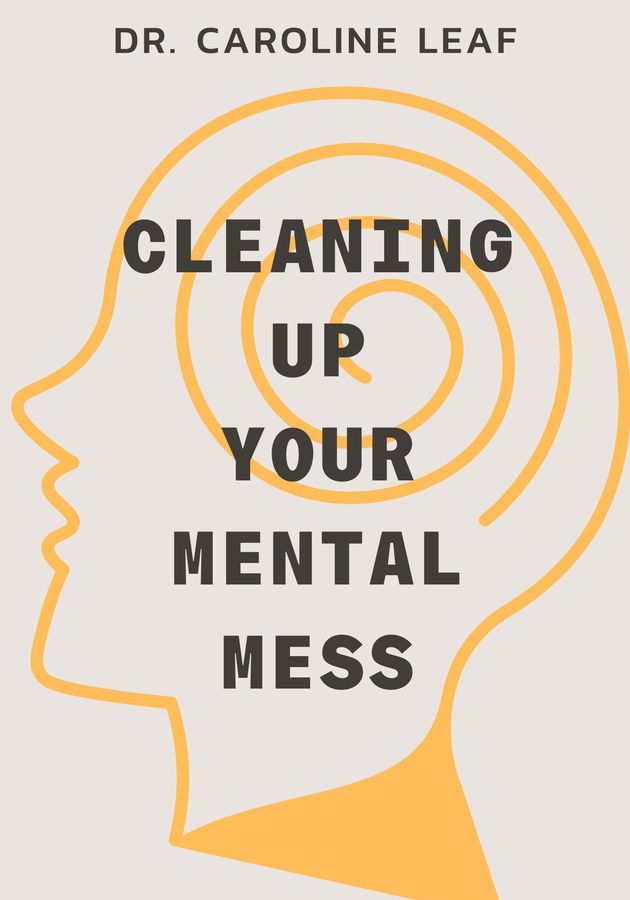Whatever it is that you're dealing with in life right now, it is the result of your past thoughts, according to Louise Hay. Hay was a motivational author and a convinced religious science practitioner. She believed that the core to healing your life lay in the power of your thoughts. So get ready to learn about healing your life from within!
The power of thoughts
Louise Hay believes that life is simple at its core. She thinks that whatever we give out into the universe will come back to us eventually in kind. Since whatever we think becomes true for us, Hay believes that we are responsible for everything in our lives, the good things as well as the bad things. She writes: “You see, if we are all responsible for everything in our lives, then there is no one to blame. Whatever is happening ‘out there’ is only a mirror of our own inner thinking. I am not condoning other people’s poor behavior, but it is our beliefs that attract people who will treat us that way.”
The subconscious and the universe are connected, according to Hay, and that is why thoughts become reality. Most people live by foolish ideas about themselves and limiting beliefs. Beliefs such as “I can’t handle money” then become reality and start dominating the individual’s life. Many of these ideas have been taught to us by our parents. Don’t blame them for it, though – they themselves were victims of a faulty upbringing, and they did the best they could with you.
You probably even talk to yourself in the way your parents used to talk to you. If you were loved and encouraged as a child, you are likely to use the same language now to support yourself. If, however, you were neglected, you may still be thinking to yourself, “You never do anything right,” or, “It’s all your fault.” And since thoughts become reality, it’s no wonder you then struggle in life.
It might be a frightening thought to realize that your present situation, whether good or bad, has been brought about by the thoughts you have had in the past. Do not despair, though: all that matters is what you are thinking right now. Even if you did have a negative attitude in the past, you can start changing it today.
Thoughts can easily be changed. Even if you experience self-hatred, this is only a hating thought toward yourself; the thought provokes a feeling that you buy into. But you can start being free right now by realizing that this is just a thought, and it only becomes true if you allow it to.
With all the people Hay has worked with, the prevalent thought was always “I am not good enough.” She believes that a lack of self-love lies at the root of physical illnesses as well. For example, she is convinced that nurturing feelings of resentment will eventually bring about cancer.
Diagnosing the problem
So how can you start healing your life? Whatever it is you are facing, whether it is a broken relationship, a terminal illness, or a lack of money, Hay believes that you are to blame. Your inner thought patterns created these outer problems, so the first step toward healing is to diagnose the problem.
Whenever someone came to see Hay in her practice, she would ask lots of questions and carefully listen to the words people used in their replies. These words are what create the future experience of the person. The first exercise Hay would regularly do with her patients would be to give them a piece of paper which said “I should” at the top. Her clients were then told to write down five or six ways to finish the sentence.
Then, her clients would read them out to Hay and after each sentence, Hay would ask “Why?” Often, the replies were something along the lines of “my mother said I should” or “because I am afraid not to.” These answers would reveal the limiting beliefs people held about themselves. Hay believes that “should” is one of the most damaging words in the English language. According to her, “Every time we use should, we are, in effect, saying ‘wrong.’ Either we are wrong or we were wrong or we are going to be wrong.”
Instead, she believes we should replace “should” with “could,” as this word gives us freedom. So instead of writing “I should” sentences, clients would have to write the same sentences beginning with, “If I really wanted to, I could....” In her sessions, Hay would then ask her clients why they did not do these things, and again received revealing answers such as “I am afraid” or “I don’t know how.”
Finding the root cause
But the root cause of all problems, according to Hay, is that “we feel we are not good enough, and there is a lack of self-love.” But where does this belief come from? As a baby, all humans know their own perfection. But as we grow into adults, we turn into people who feel unworthy and unlovable.
Hay believes that we humans are like roses. From the budding until the last petal falls, roses are always perfect and always beautiful. To realize your own beauty, you will have to do some mental house cleaning. Look at your past, your experiences, and the thoughts and beliefs you once held. Examine each in turn and keep what is important to you, but toss everything else out that does not serve you any longer.
Hay compares mental house cleaning to actual house cleaning. You would not look into last night’s garbage to create today’s meal, and neither should you use yesterday’s mental garbage to create the experiences of tomorrow. An example of a limiting belief would be “I’m not good enough.” Hay believes that this was caused by a father who repeatedly told their child that they were stupid. Growing up the child desperately wants to be a success, but since it is guided by feelings of guilt, the child will never achieve anything in life.
With all the beliefs and thoughts you hold, you must ask yourself, “Is it true?” Thoughts only become reality if you believe them to be true. Hay writes, “Most of us choose to think the same kinds of thoughts our parents used to think, but we don’t have to continue to do this.” Since thought patterns can be changed, what is true can also be changed.
Look at your own life and the problems you are facing. Then ask yourself, “What kinds of thoughts am I having that create this?” For example, maybe you believe that it is difficult for you to learn. But is it really? Look at where that belief came from. Maybe it was your first-grade teacher who told you this, so is this really still true for you?
How to change
Now that you have examined your problems and identified their source, it is time to change your way of thinking. The author believes that this happens through “nurturing the willingness to let go, controlling the mind, and learning how forgiveness of self and others releases us.” Hay claims that it usually gets worse before it gets better, but that that is just proof that the process is working.
Often, the problem you are working on is only a symptom. Take giving up cigarettes as an example. You start by telling yourself that you are ready to release the need for cigarettes. After a while though, you notice that your relationships start feeling more uncomfortable. It seems the cigarettes were only a symptom of a larger problem! So next, you would tell yourself that you are ready to let go of your need for uncomfortable relationships.
After a while you realize that your relationships were uncomfortable because people kept criticizing you. So your real problem was criticism all along, since that is what you had experienced since you were a child. The next step would then be to affirm your forgiveness for the way you were treated as a child, and eventually your need for cigarettes will evaporate, and your relationships will improve.
Hay believes that the key to success here is to be gently persistent and take a few moments every day to reflect. Trust your inner guidance. To release your need, you can try a mirror exercise: Stand in front of the mirror and tell yourself several times, “I now realize that I have created this condition, and I am now willing to release the pattern in my consciousness that is responsible for this condition.” Convince yourself of this.
Remember, your mind is a tool – you control it, not the other way around. You can choose to use it in any way you wish. Hay believes “there is an incredible power and intelligence within you constantly responding to your thoughts and words.” If you align yourself with that power, you can control your mind and your life.
If you keep holding on to the past, you will only hurt yourself and not be able to live your life to the fullest. The power always lies in the present moment but being fixated on the past means you can never fully experience the present. So the key to healing your life lies in letting go and forgiving.
Healing your body
According to Hay, your thoughts can cause illnesses. For her, the four negative feelings of resentment, criticism, guilt, and fear can be blamed for any illness that might befall you. Resentment causes cancer, criticism can be blamed for arthritis, guilt causes pain and fear creates anything from baldness to ulcers and sore feet.
To get rid of these illnesses, you need to get rid of the past. Forgive everyone, no matter what they did to you. Hay believes her own cervical cancer was caused by resenting the man who raped her when she was 5 years old. By forgiving her abuser and through the power of positive thinking, according to Hay, she was able to heal herself.
Hay says it is foolish to punish yourself for something that someone else did to you. So if you are ill, search your heart to see who you need to forgive. According to Hay, the person you find it hardest to forgive is actually the person you need to let go of the most. It is enough to be willing to forgive them, you do not need to know how to practice the forgiveness.
Having the willingness to forgive will be enough of a signal for the universe around you. No matter what you struggle with, practicing self-love will heal you. Hay believes: “Loving and approving of yourself, creating a space of safety, trusting and deserving and accepting, will create organization in your mind, create more loving relationships in your life, attract a new job and a new and better place to live, and even enable your body weight to normalize.”
Final Notes
Actively monitor your thoughts and think positive, and the life you wished for will become a reality.
Hay’s “You Can Heal Your Life” is a potentially extremely dangerous publication. It places guilt on victims of abuse or people with terminal illnesses by insinuating that these things are their fault. Even though Hay attempts to empower people by teaching them that they alone are in control of their lives, in someone vulnerable this book could have the opposite effect of triggering depression and suicidal thoughts.
12min Tip
Write your “I should” list and ask yourself why you hold these beliefs about yourself.





























